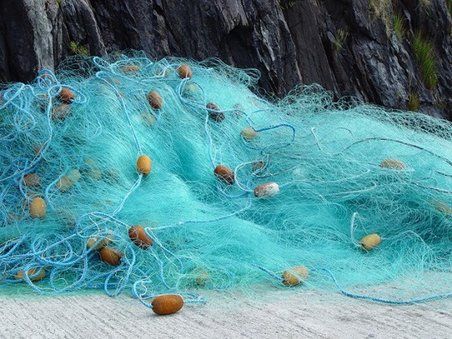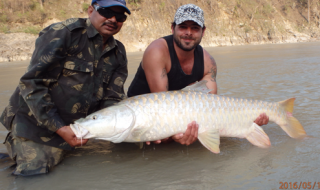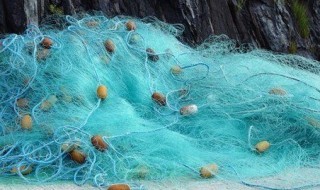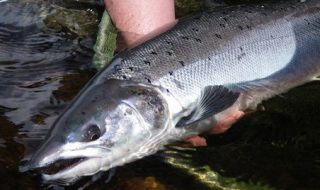The Angling Trust has today published a comprehensive report calling for far greater protection for Britain’s estuaries and for a radical overhaul of the outdated rules governing inshore netting, which is doing huge damage to juvenile fish stocks and endangering the survival of important species such as bass, mullet, salmon and seatrout.
Many inshore and migratory fish stocks have suffered severe declines since the proliferation of monofilament nets. More than 70 percent of sea anglers surveyed stated that the biggest factor stopping them going fishing was poor fish stocks. Sea angling activity currently results in a total overall spend of over £2bn to the English economy.
The dossier details the dramatic increase in the impact of netting on inshore fish stocks and recreational angling as a result of the introduction of cheap, monofilament nets, and makes recommendations for modernisation of the out-dated, complex and poorly-enforced legislation regulating the use of nets in home waters.
Among the recommendations are calls for:
• All those catching fish for sale to be licensed and the removal of the current ‘grey areas’ between commercial/non-commercial and licensed/unlicensed types of fishing which are often exploited for personal gain.
• Net-free zones to be designated to prevent overfishing in localised areas of sensitivity for specific stocks and species – such as estuaries, which act as nursery grounds and migration routes for a number of threatened and protected species.
• Spawning, aggregating and migrating stocks of species such as bass, mullet, salmon, sea trout and others to be protected from inshore netting through temporal or spatial closures.
• The Marine and Coastal Access Act to be reviewed to ensure that local fisheries management and enforcement authorities have the powers to introduce and enforce regulations around the coast for both marine and migratory species.
• Streamlining of netting regulations to make control, monitoring and enforcement more efficient and more effective.
• Juvenile and spawning fish stocks to be afforded better protection to allow them to complete their lifecycles, which would be of benefit to commercial fishermen, anglers and the environment.
• Reducing the number of lost monofilament nets, which can continue catching and killing fish, seabirds, seals and other marine mammals for many years – the so called ‘ghost nets’.
David Mitchell, the Angling Trust’s Head of Marine, said: “The current regime covering inshore netting is chaotic, absurd, outdated, unenforceable, unsustainable and bad for fish, the economy and the environment. It’s high time the regulations around netting in our inshore waters were brought into the 21st century and reflected the fact that fish stocks are a publicly-owned resource and should be managed for the benefit of society as a whole”.
Angling Trust Chief Executive Mark Lloyd said: “This report highlights the outdated and irrational regulatory regime governing inshore netting which is inadequately enforced. The outcome is a decline in biodiversity, fish stocks and angling participation, which deprives thousands of small businesses in coastal communities of vital income. The challenge of Brexit and the review of byelaws by the IFCAs present a unique opportunity to reform and modernise these regulations and make them fit for purpose.”
Currently two of the Inshore Fisheries and Conservation Authorities (IFCAs) are consulting on reforms to their netting byelaws. The Devon and Severn IFCA have proposed banning netting in a large part of the Severn Estuary and in many estuaries and rivers in Devon, in order to help bass, salmon and sea trout stocks recover and to improve recreational angling. In Cornwall, the local IFCA is proposing “to balance the different needs of persons exploiting sea fisheries resources in the tidal parts of rivers and estuaries by prohibiting most net fishing methods” …and to provide “additional protection from netting for sea fish, salmon and sea trout, including juvenile and spawning stocks.”
The Angling Trust intends to send a copy of the dossier to all ten regional IFCAs in the UK and to the Fisheries Minister George Eustice.
A copy of
Inshore Netting and Estuarine Protection – A New Approach to Inshore Fisheries for the 21st Century can be downloaded
HERE.






